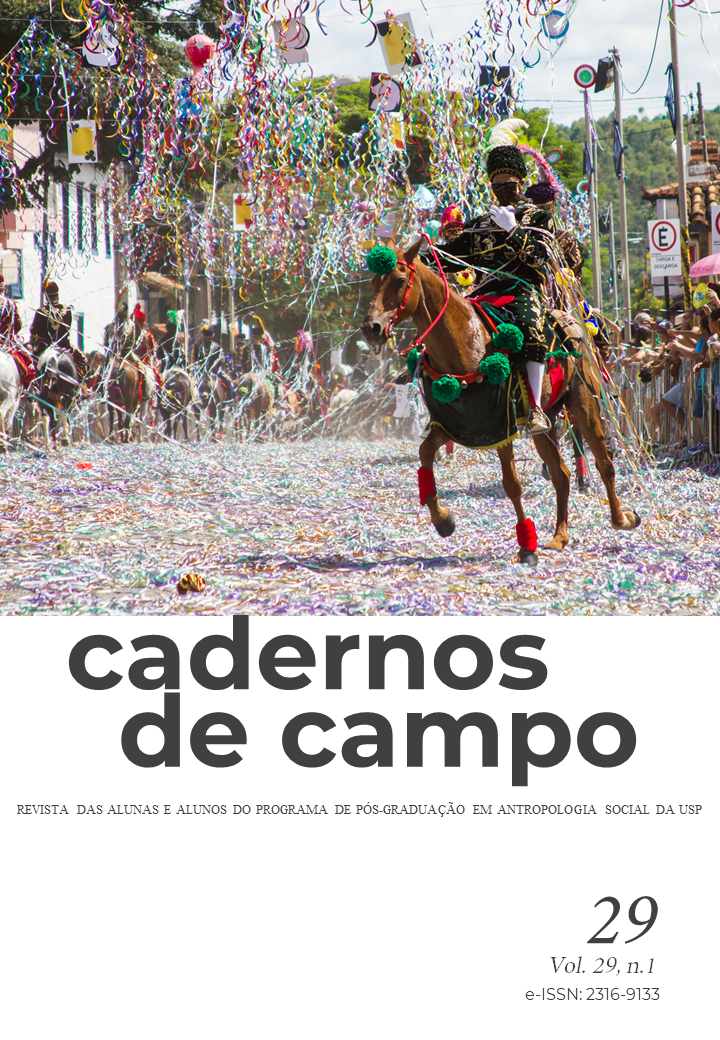La pandemia del Coronavirus en la Amazonía ecuatoriana
vulnerabilities and obliviation of state
DOI:
https://doi.org/10.11606/issn.2316-9133.v29i1p94-110Keywords:
coronavirus, pandemic, indigenous people, AmazonAbstract
The Coronavirus pandemic, generated from the so-called SARS-CoV-2, unleashed a worldwide health crisis, with Latin America currently being the epicenter of the damage. Although in several countries of the region, the most populous cities are those with the highest cases of infection and death, the situations facing the Amazon basin, mainly in Brazil, Peru, Colombia and Ecuador are very worrying. In this article we focus on the Ecuadorian Amazon, with the framing of the figures of the pandemic, the cases of contagion in indigenous peoples and nationalities, the vulnerabilities, and the neglect of the State in guaranteeing access to health, prevention and management of the pandemic with attention to the specificities of geographic and cultural contexts. Finally, we present the actions carried out by indigenous organizations to curb the coronavirus.
Downloads
References
BARTLEY, Tim; BERGESEN, Albert. (1997). “World-system studies of environment”.Journal of World-Systems Research, Vol.3, n.3, p.1-9.
BECK, Ulrich. (2000). Retorno a la teoría de la sociedad del riesgo.Boletín de la AGE. N.30, (s/s), p.9-20
CABODEVILLA, Miguel Angel. (2013). Los huaorani en la historia de los pueblos del oriente. Quito: CICAME
CARDONA, Antonio José Paz. (2020). “Al menos catorce indígenas siekopaiestán contagiados con COVID-19 en Ecuador”. Mongaby Latam (in-linea). Año 2020, mayo-7. https://es.mongabay.com/2020/05/covid-19-en-indigenas-de-ecuador-siekopai-en-peligro/
HARVEY, David. (2000). “Política anticapitalista en tiempos de coronavirus”. En: ZIZEK, Zibechi et al. Sopa de Wuhan. Pensamiento contemporáneo en tiempo de pandemias.Editorial: ASPO (Aislamiento Social Preventivo y Obligatorio).
JONES, Kate, et al. (2008). “Globaltrendsinemerginginfectiousdiseases”. Nature, Vol.451, p.990-993.
RIVAL, Laura. (1993). The growth of family trees: understanding waorani perceptions of the forest. New Series, Vol. 28, No. 4, p. 635-652.
SCHMINCK, Marianne; CHARLES, Wood.(1987). “The Political Ecology of Amazonía”. In: LITTLE, Peter & HOROWITZ, Michael.(Eds). Lands at Risk.Westview Press: Boulder, p.38-57
SIBILA, Paola. (2009). El hombre posorgánico. Buenos Aires: Fondo de Cultura Económica.
WALLERSTEIN, Immanuel.(2004). World system análisis. An Introduction. Durham: Duke University press.
WOLF, Eric. (1982). Europe and the people without history. Berkeley: University of California press
Downloads
Published
Issue
Section
License
I authorize Cadernos de Campo Journal of Anthropology to publish the work of my authorship/responsibility, as well as I take responsibility for the use of images, if accepted for publication.
I agree with this statement as an absolute expression of truth. On my behalf and on behalf of eventual co-authors I also take full responsibility for the material presented.
I attest to the unpublished nature of the work submitted





